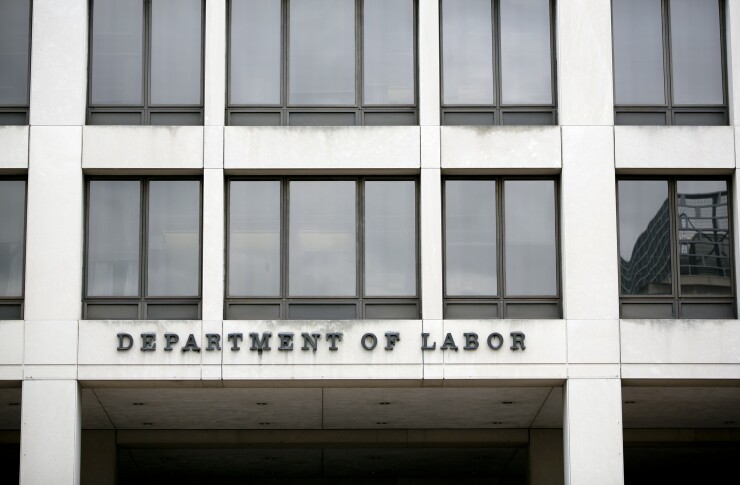President Trump's executive action that could result in delaying the Department of Labor’s fiduciary rule has advocates defiant, even though they fear the order could scrap the regulation entirely.
"We need a new strategy. We need to remake messages to better speak to investors and leaders outside Wall Street and Washington," says Knut Rostad, president of the Institute for the Fiduciary Standard.
Providing some hope is that the DoL rule, with a compliance deadline in April, has already prompted many firms to upend their business models, in some cases scaling back or eliminating entirely commission-based retirement accounts.
Maureen Thompson, vice president of public policy at the CFP Board, said she worries that any delay could effectively kill the DoL's regulation. But the board and its aligned groups intend to continue making the case for the fiduciary rule in their conversations on Capitol Hill, though she acknowledges with some dismay that the issue has become a partisan one, with scant Republican support.
"We're certainly going to do outreach on the right side of the aisle," she says. "I don't see it as a partisan issue. I recognize that it's played out that way."
'ENTIRELY EXPECTED'
Rostad calls Trump's move "entirely expected," but sees it as a wake-up call for the investor advocates, urging groups to reevaluate their messaging on the issue.
"Obviously, we're going to fight this. I don't know how, but ... we're going to keep a very close eye on what the Department of Labor's doing, what the SEC's doing, what Congress is doing," he says.
"We're going to try to educate policymakers as we have before how important the fiduciary standard is to hundreds of millions of Americans. Beyond that, we're going to renew our efforts to educate the public."

In the near term, fiduciary advocates will continue to make their case to the Labor Department that the many firms have already been complying with the provisions of the fiduciary rule, arguing that, contrary to the predictions of critics, retirement advice is readily available for small investors, and fees have not soared.
Ron Rhoades, a noted fiduciary expert and professor of finance at Western Kentucky University, stresses the importance of remaining vigilant for the advocacy camp, and even looks ahead to reviving the fight in earnest in four years under a potentially new administration.
Rhoades still anticipates that Trump's Labor Department will ultimately scrap the rule or revise it to enact a watered-down fiduciary standard that is more amenable to Wall Street.
"Basically, this is the death of the Department of Labor fiduciary rule, no doubt in my mind," Rhoades says. "I've been predicting this ever since Trump got elected."
'LABOR OF LOVE'
Barbara Roper, director of investor protection at the Consumer Federation of America, declined to offer a prediction on the ultimate fate of the rule, focusing instead on next steps for advocates.
"If this goes into the notice-and-comment process at DoL, we have a strong case to make that the rule is benefiting retirement savers while preserving access to advice," Roper says. "Indeed, costs for both advice and investments are going down, not up. If the facts matter, the rule should be safe. But that's a big 'if' these days."
The view was very different among those who support the rule.
Rep. Ann Wagner (R-Mo.), one of the leading critics of the DoL rule and the author of legislation to postpone it, was at the White House for the signing ceremony on Friday (Trump handed her the pen he used to sign it), and called the fight against the DoL rule "a labor of love for me for over four years."
In an emailed statement, Wagner says: "This delay will allow the administration to potentially repeal the rule entirely, and within this time, I will continue working toward a permanent, legislative solution in Congress to help preserve investment choice, access and affordability while ensuring all families are receiving investment advice that is truly in their best interest."





